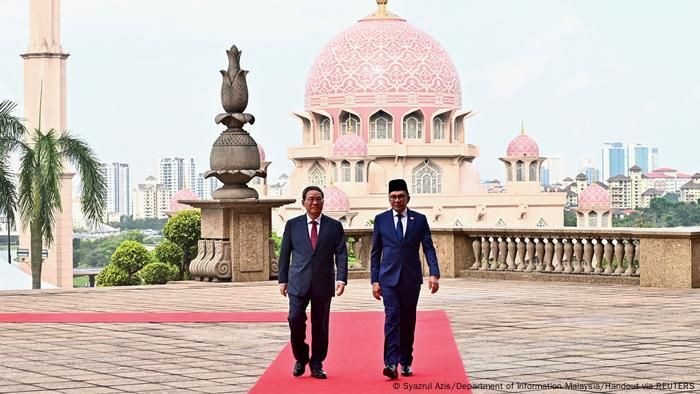马来西亚总理安瓦尔为了促进经济增长,一直在加强与中国的关系。中国是马来西亚最大的贸易伙伴,也是“一带一路”倡议在东南亚地区的最大受援国之一。安瓦尔与中国签署了一系列协议,包括续签经贸合作协定,以及参与“一带一路”倡议项目。然而,中国与美国之间的贸易和地缘政治紧张局势,也使马来西亚面临两难境地。美国也是马来西亚的密切经济和战略伙伴。安瓦尔在南海问题上采取了更加低调的立场,避免激怒中国,但美国对中国出口半导体的限制也引发了马来西亚的担忧。专家认为,安瓦尔政府试图同时与美国和中国保持积极关系,但这种平衡策略可能最终面临挑战。
Original Title: 马来西亚如何在美中之间寻找平衡?
Summary: In an effort to boost economic growth, Malaysian Prime Minister Anwar Ibrahim has been seeking to strengthen ties with China. China is Malaysia’s largest trading partner and one of the biggest recipients of the Belt and Road Initiative (BRI) in Southeast Asia. Anwar has signed a number of agreements with China, including the renewal of a trade and economic cooperation agreement, and has participated in BRI projects. However, escalating trade and geopolitical tensions between China and the United States have put Malaysia in a difficult position. The US is also a close economic and strategic partner of Malaysia. Anwar has adopted a more low-key stance on the South China Sea issue, avoiding provoking China, but US restrictions on semiconductor exports to China have also raised concerns for Malaysia. Experts believe that Anwar’s government is attempting to maintain positive relationships with both the US and China, but this balancing act may ultimately face challenges.

